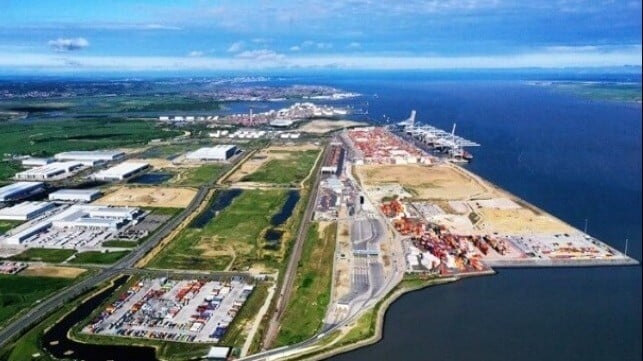DP World's Global Footprint Crosses 100 Million TEU Mark

Ports operator and logistics giant DP World is celebrating a major milestone: it now has 100 million TEU in container handling capacity across its global footprint.
Over the past four and a half decades, the Dubai-based conglomerate has been aggressive in bidding for port and terminal management concessions across six continents. It has invested $11 billion in port infrastructure in the last 10 years alone.
DP World’s determination to be at the forefront of global trade is bearing fruit. Now commanding 9.2 percent of the global container terminal market, the company ranks in the top five global port operators.
The race to increase its total capacity has been particularly intense over the past decade. Investments in port infrastructure through new greenfield developments, terminal expansions and acquisitions added 24.6 million TEU in capacity (33 percent) in ten years, having started with 75.6 million TEU in 2014. Over the past 12 months, its global gross container handling capacity rose by another five percent.
Today, DP World operates more than 80 ports as well as marine and inland terminals in more than 40 countries across six continents. London Gateway in the UK, the Port of Callao in Peru, and the port of Dar es Salaam in Tanzania have been among the key drivers of its growth in recent years. Investments at the International Container Transshipment Terminal, Cochin, in India, Constanta in Romania, Belawan New Container Terminal in Indonesia among others have also contributed to the capacity growth.
“Crossing the 100 million TEU mark is a momentous milestone in our journey, which began 45 years ago. This achievement reflects our commitment to investing in world-class ports and logistics infrastructure to make trade flow,” said Sultan Ahmed bin Sulayem, DP World Group Chairman and CEO.
He added that with the global container market expected to continue on a growth trajectory in the coming years, DP World has the capacity to service it. According to Drewry, global container throughput is expected to increase by 2.8 percent this year.
